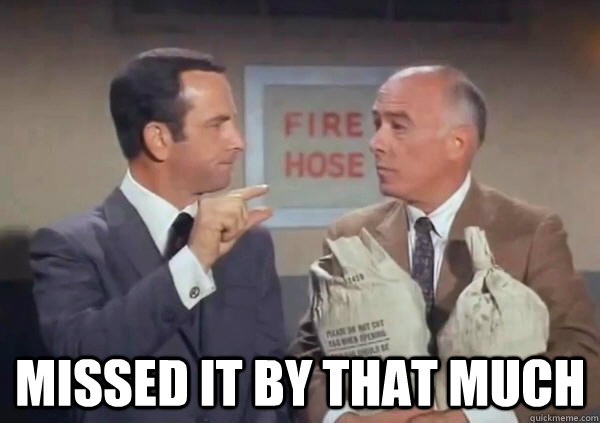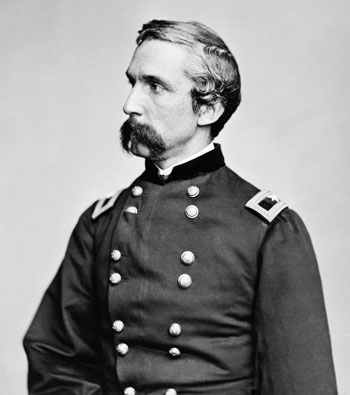change, empowerment, leadership, positivity, professional development, responsibility
Missed It by That Much
If you were a child in the ’60s, this was a phrase that you heard Maxwell Smart, or Agent 86, use quite often in the series Get Smart. I can still hear Max say, “Missed it by that much” as he held two fingers close together. In leadership, there is not a great deal of distance between success and failure. It’s the risk takers, not the folks that have paralysis by analysis, that take the world and shake it up a bit.

Rodney, Mississippi missed becoming the capital of Mississippi and a successful metropolis because it did not understand change. Located in Jefferson County, about 32 miles northeast of Natchez, Mississippi, Rodney was once such an important city that it very nearly became the capitol of Mississippi. Today, it is a literal ghost town with only a handful of area residents. Long before a settlement was ever formed there, the location was a popular Mississippi crossing—directly on the Mississippi River. It was also an early crossing place for travelers along El Camino Real, the old Spanish “Royal Road.” Today, the old townsite isn’t on the Mississippi River anymore, but rather about two miles inland. How could a city that was on the Mississippi River now be two miles inland? Change and complacency.
As leaders, we must look at changes and shifts in norms so we can be ready to capitalize on where things are headed—not where they have been. Way too often we miss it by the smallest of margins, because shifts sometimes lull us to leadership sleep.
Leaders embrace opportunities that look like losses and make them successes. One of my favorite success stories is that of Joshua Chamberlain. On July 2, 1863, Colonel Strong Vincent looked to Colonel Joshua Chamberlain, a citizen soldier and the leader of the 20th Maine Regiment to defend Little Round Top at the Battle of Gettysburg “at every hazard” (that is Southern for “You can’t come back with excuses!”). It was vital for the Union Army to not lose this hilltop position to prevent the Confederates from breaking through their lines. At Gettysburg, the 20th Maine and other Union troops took both Little Round Top and Big Round Top. In Chamberlain’s report, the Union regiments initially opened fire at close range and pushed the Confederates into taking shelter. Soon after, there came a final assault by the Confederate forces. All seemed lost for the 20th Regiment on Little Round Top, as their ammunition was all but depleted. But Chamberlain did something quite amazing. He gave a simple order, “Fix bayonets and charge.” Now, I’m no genius, but charging with an empty rifle is not exactly the sharpest thing he could have done. It wasn’t something a military guy would have done, but Chamberlain was an educator, not a soldier. Chamberlain explained, “The effect was surprising; many of the enemy’s first line threw down their arms and surrendered.” He took a losing position and turned it into a win.

How many times have we settled or retreated when the opposite motion would have resulted in a different outcome?
Here are five things to consider when leadership seems a long way off:
1. Great Leaders Improve Themselves First
People will almost never rise above their leader. The leader sets the bar in almost every area, from work ethic to integrity to office atmosphere. If he/she pays attention to the example he/she sets, those underneath will follow.
2. Great Leaders Embrace Feedback
Great leaders embrace feedback from their followers. They understand that they have both strengths and weaknesses, and that leadership involves a willingness to accept both criticism and praise.
3. Great Leaders are Lifelong Learners
In order to get to the top of an organization, you usually have to do a fair amount of learning. You need to gain mastery of new subjects, new skills, and new concepts. You’ll often have to read new books and articles related to your position. When you move upward in the organization, you’re constantly learning.
4. Great Leaders Take Responsibility
“The buck stops here” saying may be a leadership cliche, but there’s truth in it. The finest leaders understand that all final responsibility lies with them. If something goes wrong, it is ultimately their fault.
5. Great Leaders Focus On Building Others Up
It’s easy to tear other people down. After all, we live in a world where failure is a regular occurrence. But what sets great leaders apart is their constant focus on building others up.



